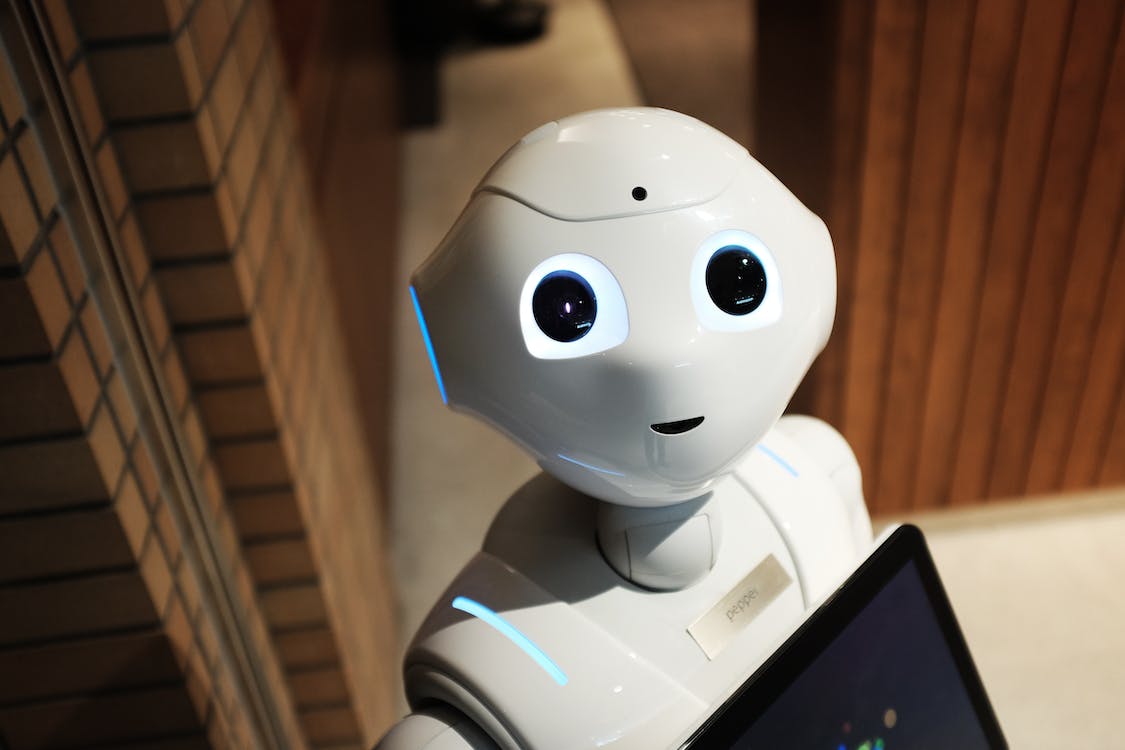The history and evolution of computer science
Computer science is a field that has been constantly evolving since its inception. The history of computer science can be traced back to the late 19th century when scientists and inventors first began to develop mechanical computing devices. In the 1930s and 1940s, the development of electronic computers marked the beginning of the computer age.
The first electronic computers were large and expensive, but they paved the way for the development of smaller, more affordable computers. In the 1960s, the advent of integrated circuits and the development of the first personal computers marked a major turning point in the evolution of computer science. The 1970s and 1980s saw the rise of computer networks, leading to the development of the Internet in the 1990s.
Since the turn of the 21st century, computer science has continued to evolve rapidly. Advances in hardware, software, and networking technologies have led to the development of new applications and devices, such as smartphones, cloud computing, and artificial intelligence. The field has also expanded to encompass new areas, such as human-computer interaction, computer graphics, and cybersecurity.
Data’s growing significance is a major development in the field of computer science. Data collection, storage, and analysis have benefited from the proliferation of data-driven applications and services. Consequently, new data management methods and tools have been created, such as data mining, machine learning, and big data.
Final thoughts There have been a number of significant breakthroughs and discoveries in computer science that have shaped its history and shaped the field as it exists today. Early work in computer science focused on mechanical computing machines, but today the discipline has expanded to include technology and applications that affect nearly every element of contemporary life. The field is growing and will have a greater impact on the future as time goes on.
The impact of computer science on society and everyday life
Computer science has had a profound impact on society and everyday life. From communication and entertainment to healthcare and education, the advancements in computer science have transformed the way people live and work.
One of the most significant impacts of computer science is in the field of communication. The development of the Internet has revolutionized the way people communicate with each other, making it possible to connect with friends and family anywhere in the world. Social media platforms have also emerged as major sources of information, entertainment, and community for billions of people.
The entertainment industry is another arena where computer science has made significant contributions. Online gaming, streaming services, and virtual reality are just a few examples of how advancements in digital technology have spawned brand new kinds of entertainment. Traditional kinds of entertainment, including movies and music, have also been affected by these technological advancements.
Computer science has had a significant impact on healthcare, leading to the creation of innovative tools and methods. Computerized systems and software, for instance, have changed the way doctors diagnose and treat patients by making it possible to quickly and easily access and analyze massive volumes of patient medical records.
The dissemination and consumption of knowledge have also been revolutionized by advancements in computer science. Thanks to the proliferation of MOOCs and other forms of online education, people from all walks of life are now able to further their education without leaving the comfort of their own homes.
Concerns about AI’s impact on society and ethics
Artificial Intelligence (AI) is a rapidly growing field that has the potential to revolutionize many aspects of society and bring about numerous benefits. However, it also raises important ethical and societal implications that must be addressed.
One of the main ethical implications of AI is the potential for loss of privacy. As AI systems collect and analyze vast amounts of data, there is a risk that this data could be misused or shared without individuals’ consent. This raises important questions about who owns the data and how it can be used.
The threat of unemployment is another moral concern highlighted by AI technology. There is a risk of job displacement as AI systems improve to the point where they can replace human labor.
Whether or not retraining programs are necessary to help workers adjust to the new labor market is an essential subject this brings for consideration.
Ethical considerations are not the only ones relevant here; there are also significant societal ramifications. For instance, some groups may be unfairly targeted because of preexisting biases and discrimination that may be amplified by AI systems. Important questions concerning the duty of AI developers to safeguard their products from prejudice and maintain fairness in operation are prompted by this development.
Another societal implication of AI is the potential for unequal access to its benefits. As AI systems become more advanced and sophisticated, there is a risk that they will only be accessible to those who can afford them, leading to greater social and economic disparities.
The role of computer science in cybersecurity
Computer science plays a crucial role in the field of cybersecurity. With the increasing reliance on technology in both personal and professional life, it is essential to have strong measures in place to protect sensitive information and systems from cyber threats.
One of the main ways in which computer science contributes to cybersecurity is through the development of secure software and systems. This includes the use of encryption technologies, firewalls, and intrusion detection systems to prevent unauthorized access to sensitive information and systems. Computer scientists also develop algorithms and protocols that help detect and prevent cyber-attacks, such as viruses, malware, and phishing scams.
The area of cryptography is another significant use of computer science in cyber security. The goal of cryptography is to make information secure and difficult for unwanted individuals to access by encoding and decoding it using mathematical techniques. To safeguard vital data including financial transactions and personal information, computer scientists create new and improved encryption methods.
The field of computer science is also essential in the development of cybersecurity experts. Computer science helps to generate experts who can comprehend and address the complex and ever-evolving dangers in the realm of cybersecurity by means of degree programs and training courses.
Future of jobs in the digital age
The rise of automation and artificial intelligence (AI) is transforming the world of work and changing the way people think about their careers and livelihoods. As machines and algorithms become more capable, there is growing concern about the impact of automation on employment and the future of work.
Use of automation in formerly human-performed tasks is a major trend that will have a significant impact on the workplace of the future. The majority of mundane, labor-intensive jobs that have been done by humans for decades are now being done by machines, which has increased efficiency and output.
Unfortunately, this also means that some human-performed vocations are becoming extinct, necessitating new types of work and employment.
The rising demand for people with digital abilities is another trend that is influencing the future of work. Software developers, data analysts, and cyber security experts will be in high demand as technology develops further. Workers can benefit from this situation if they possess the right abilities, but it can also be difficult for them if they do not.
The rising prevalence of automated tasks is also influencing how people view their future employment prospects. As “jobs for life” become less common, individuals must get inventive about how to make ends meet in the era of technology. This could involve learning something new, venturing out on one’s own, or entering the gig economy.
The role of computer science in healthcare
Computer science has revolutionized the healthcare industry in many ways, from improving patient care to reducing costs and increasing efficiency. The field of computer science plays a crucial role in healthcare by providing the technological tools and solutions that are necessary to support this complex and dynamic industry.
One of the main ways in which computer science is impacting healthcare is through the development of electronic health records (EHRs). EHRs allow healthcare providers to store and manage patient information electronically, reducing the need for paper-based records and improving the accuracy and accessibility of patient information. This not only helps improve patient care, but also reduces the risk of medical errors and makes it easier for healthcare providers to collaborate on patient care.
The usage of telemedicine is another method in which computer science is having an effect on the medical field. By using technologies like video conferencing and remote monitoring systems, telemedicine provides patients with remote access to healthcare services. This not only makes it easier for people to get medical attention in outlying or neglected areas, but it also saves time and money by eliminating the need to travel.
Robotic surgery, computer-assisted diagnosis, and individualized healthcare are just a few examples of the cutting-edge medical technologies that have benefited greatly from advancements in computer science. Millions of people’s lives are being improved, healthcare costs are being lowered, and technology is making the world a better place.
The role of computer science in education
Computer science has had a profound impact on education and is playing an increasingly important role in the way that students learn and teachers teach. The field of computer science provides the technological tools and resources that are necessary to support and enhance the educational experience.
One of the main ways in which computer science is impacting education is through the use of technology in the classroom. This includes the use of laptops, tablets, and other devices, as well as educational software and online learning platforms. These tools not only make learning more engaging and interactive, but they also provide students with new and innovative ways to access and process information.
The use of data and analytics is another another way in which computer science is having an effect on the classroom. Computer science is assisting teachers in making sense of the massive amounts of data created by today’s educational systems in order to better comprehend student learning and tailor lessons to the unique requirements of each student. This has the potential to increase the quality of education provided to students.
New and exciting educational technologies, such as virtual and augmented reality, gamification, and artificial intelligence, are being developed with substantial contributions from the field of computer science. Students and educators alike can take advantage of fascinating new possibilities made possible by these technology.
In conclusion, CS is an essential part of the educational process, with far-reaching effects on both student and educator outcomes. The significance of computer science in the classroom is only going to increase as time goes on, and it will be critical for teachers, legislators, and technology developers to collaborate to guarantee that all children have access to the resources they need to flourish in the digital age.
The Internet’s Effects on Human Communication and Society
The internet has had a profound impact on communication and society, transforming the way that people interact, share information, and access services. The rise of the internet has brought about significant changes to both personal and professional communication, and has changed the way that people connect, collaborate, and do business.
The proliferation of social media is arguably the most obvious example of how the internet has changed the nature of human interaction with one another. The advent of social media sites like Facebook, Twitter, and Instagram has facilitated communication and knowledge sharing amongst individuals and smaller groups with shared interests. As a result, people are now able to meet new people and build different kinds of connections than ever before.
The proliferation of IM and video chat is another way the internet has changed the way we talk to one another. Thanks to these advancements, people can now easily stay in touch with one another and work together, regardless of their physical locations.
The internet has had a profound effect on society by altering people’s habits of acquiring knowledge, making purchases, and interacting with businesses. Since the advent of e-commerce, consumers all over the world have been able to purchase online and gain access to products and services previously only available to a select few.
The role of computer science in entertainment and the arts
Computer science has had a profound impact on entertainment and the arts, transforming the way that people create, consume, and experience art and entertainment. The field of computer science provides the technological tools and resources that are necessary to support and enhance the entertainment and art industries.
One of the main ways in which computer science has impacted entertainment is through the rise of video games. Video games have become one of the most popular forms of entertainment, and the use of computer science has made it possible to create games with stunning graphics, intricate storylines, and immersive experiences. This has led to the creation of a thriving video game industry, and has changed the way that people play and interact with games.
The advent of digital art is just another manner in which computer science has affected the creative sector. By definition, digital art is a type of visual art that makes use of computers and digital tools to produce and alter visual content. These days, digital artists have more tools at their disposal than ever before, allowing them to produce more intricate, realistic, and technically impressive pieces of art than ever before.
Computer scientists are also making significant contributions to the music, film, and publishing sectors by opening up new channels for the production and dissemination of material. The proliferation of online video-streaming services like Netflix and YouTube has democratized access to cultural productions and expanded audiences for them globally.
The role of computer science in agriculture and environmental sustainability
Computer science has played an increasingly important role in agriculture and environmental sustainability, providing the tools and technology necessary to support sustainable agriculture and improve environmental management. In recent years, computer science has been applied in agriculture to support precision agriculture, increase efficiency and productivity, and reduce the environmental impact of agriculture.
Precision agriculture is a farming approach that uses technology to collect data on various aspects of farming operations, such as soil and plant health, weather conditions, and crop growth. This information is then used to make more informed decisions about planting, fertilizing, and harvesting crops, leading to more sustainable and efficient agriculture practices.
By creating new technology and tools that promote sustainable farming, computer science is contributing to agriculture’s increased efficiency and productivity. Examples of such technology include computer-controlled irrigation systems and GPS-enabled tractors, which help farmers save water and energy by pinpointing exactly where they are in a field.
Computer science is playing an important part in lowering the negative effects agriculture has on the environment, alongside its roles in precision agriculture and boosting efficiency. Using data analysis tools, for instance, farmers can keep tabs on how their methods are affecting the environment, and computer-controlled systems can help them cut back on pesticide and herbicide use.
The role of computer science in transportation and logistics
Computer Science plays a crucial role in the transportation and logistics industry, enabling companies to optimize their operations, improve efficiency, and ultimately provide better service to their customers.
One of the primary ways that computer science is used in transportation and logistics is through the development of software and systems for tracking and managing the movement of goods.
Transportation management systems (TMS) are one such example; they utilize algorithms and data analysis to plan the most efficient routes for cars and shipments, which in turn cuts down on expenses and boosts turnaround times. A WMS also employs cutting-edge technology to monitor stock and control the flow of goods within a warehouse, guaranteeing that items will always be accessible.
The creation of self-driving cars and unmanned aerial vehicles are two further examples of how computer science is being put to use in the logistics and shipping sector. Reducing the need for human intervention and increasing efficiency, these systems use cutting-edge algorithms, machine learning, and computer vision to make judgments and navigate complex settings. Also, businesses can experiment with new types of delivery, such same-day shipping, because of the tools made available by these technologies.
Improvements in data management and analysis are one further way that computer science is having an effect on the transportation and logistics sector. More and more businesses are realizing the importance of having access to robust data analytics solutions in order to make sense of the massive amounts of data produced by transportation and logistics operations. Predictive analytics, for instance, can be used to assist businesses spot patterns in their operations and make preventative changes to boost productivity.
Finally, computer science is also playing a key role in the development of the Internet of Things (IoT), which is transforming the transportation and logistics industry by enabling real-time tracking and communication between devices and systems. This technology is making it possible for companies to monitor and manage their operations in real-time, improving visibility and control, and enabling them to respond quickly to changing conditions.
Effects of Big Data on Organizations and Society
Big data is having a profound impact on both business and society as a whole. It refers to the massive amounts of structured and unstructured data that are generated every day, ranging from customer transaction records and social media posts to sensor readings and images.
In the business world, big data is changing the way companies operate by providing them with insights into consumer behavior, market trends, and operational efficiency. For example, using big data analytics, companies can identify patterns and relationships in consumer purchasing habits, allowing them to target marketing efforts more effectively and increase sales. Additionally, big data is being used to optimize supply chain operations, improve risk management, and enhance decision-making processes, leading to increased efficiency and cost savings.
The societal impact of big data is equally substantial. Big data is helping to enhance healthcare by, for instance, shedding light on the patterns of disease and the efficacy of treatments previously unknown to medical professionals. This is facilitating the advancement of healthcare and medical research. In addition, transportation, energy, and environmental management are all making use of big data to make better resource allocation and waste reduction decisions.
The fast expansion of big data, however, has prompted serious worries about privacy and ethics. Questions concerning the appropriate use of this information and the need for strong privacy protection are raised, for instance, when firms and governments employ big data to collect and analyze sensitive personal information. On top of that, big data algorithms might have unforeseen implications for already vulnerable populations by reinforcing prejudice and discrimination that already exists.
It is crucial that we solve these difficulties and adopt acceptable data management methods if we are to fully exploit the potential of big data. To achieve this goal, corporations, governments, and universities must work together to create new data privacy rules and regulations that safeguard persons and communities.
The role of computer science in finance and banking
Computer science plays a critical role in the finance and banking industry, enabling organizations to improve efficiency, reduce costs, and better serve their customers.
One of the primary ways that computer science is used in finance and banking is through the development of financial technology (fintech) applications and services.
Fintech is transforming the industry by providing consumers with new and innovative financial services, such as online payments, mobile banking, and peer-to-peer lending. This is enabling consumers to access financial services more easily and at a lower cost, and providing financial institutions with new opportunities to reach new markets and improve their customer experience.
Another way that computer science is being used in finance and banking is through the use of advanced analytics and machine learning algorithms. These technologies are helping institutions to better understand and manage risk, improve the accuracy of fraud detection, and make more informed investment decisions. For example, predictive analytics can be used to identify high-risk customers and transactions, allowing financial institutions to quickly detect and prevent fraud.
In addition, machine learning algorithms can be applied to the analysis of massive datasets to spot patterns and trends, allowing organizations to better allocate their resources.
The invention of blockchain technology, which enables secure, transparent, and tamper-proof transactions, is another example of how computer science is revolutionizing an industry. New financial services like digital currencies and smart contracts, as well as the efficiency and security of existing financial procedures like cross-border payments and record-keeping, are being developed using blockchain technology.
In addition to these more narrow uses, developments in computer security are a major driver of change in the banking and financial sector. Since banks and other financial institutions depend increasingly on technological infrastructure to provide their services, it is crucial that these infrastructures and the data they contain are protected from cyber threats. Here, computer science comes into play, as it provides businesses with the means to safeguard their systems and their customers’ personal information.
To sum up, computer science is playing an essential role in the banking and financial sector by helping businesses increase productivity while decreasing expenses and enhancing their customer service.
It is expected that computer science will play an ever-increasing role in this sector as technology develops, allowing financial institutions to adapt to and survive in a dynamic global market.
The role of computer science in the development of new technologies
Computer science has played a key role in the development of many new technologies that are shaping the world as we know it today. From the rise of the Internet to the development of artificial intelligence, computer science has been a driving force behind the technological advancements that are transforming society.
One of the most significant ways in which computer science has contributed to the development of new technologies is through the development of the Internet. Computer scientists have played a key role in the creation of the protocols and technologies that make the Internet possible, such as the World Wide Web, HTML, and TCP/IP. These innovations have enabled the Internet to become a global network that connects billions of people and devices, providing access to vast amounts of information and enabling new forms of communication and commerce.
The advancement of artificial intelligence is another field that has benefited greatly from computer science. For decades, scientists in the field of computer science have labored to perfect algorithms and models that would one day allow machines to do activities formerly reserved for human intellect, such as visual and auditory identification and decision making. Many novel uses, such as autonomous vehicles, digital assistants, and recommendation systems, have emerged as a direct result of these technological breakthroughs.
Robotics has advanced greatly because to the contributions of computer scientists, who have made it possible for machines to carry out previously impossible tasks and engage with their environment in novel ways. There is an increasing variety of uses for robots in industries ranging from manufacturing and assembly to search and rescue, and computer science plays a crucial role in enabling these uses. New algorithms are being developed by computer scientists to give robots the ability to comprehend and navigate complex situations, interact with humans in natural ways, and learn from experience, among other things.
The realm of virtual and augmented reality is another significant area where computer science is playing a role in the development of new technologies. Scientists in the field of computer programming are always working to improve our ability to interact with digital data, enjoy new types of entertainment, and fully immerse ourselves in virtual worlds. The result is cutting-edge software and services that are revolutionizing our daily routines.
The role of computer science in the development of virtual and augmented reality
Virtual and augmented reality (VR/AR) are emerging technologies that are rapidly changing the way we interact with the world around us. Computer science plays a critical role in the development of VR/AR, providing the algorithms, software, and hardware necessary to create immersive and interactive virtual experiences.
The advancement of rendering techniques is one of the primary contributions of computer science to the growth of virtual reality and augmented reality. Researchers in the field of artificial intelligence are hard at work building algorithms for virtual and augmented reality systems that will allow them to generate believable virtual landscapes with precise lighting, shading, and texturing. These methods are crucial for developing virtual reality (VR) experiences that make people feel as though they have been transported to another world.
The advancement of virtual reality and augmented reality interface technologies is another area where computer science is playing an important role. Gesture recognition, haptic feedback, and eye tracking are just a few of the innovative ways that computer scientists are creating allowing people to engage with virtual environments. These tools are crucial for developing compelling VR experiences that encourage natural, intuitive interactions between people and virtual items and settings.
Virtual reality and augmented reality hardware, such as head-mounted displays, motion tracking systems, and haptic feedback devices, are all being developed with significant contributions from the field of computer science. These methods are essential for the development of VR/AR systems that can provide interactive and immersive experiences, and computer scientists are constantly innovating new hardware to push the limits of these technologies.
In addition to these technical contributions, computer science is also playing a role in the development of VR/AR applications and services. Computer scientists are developing new applications and services that leverage VR/AR technologies to deliver new forms of entertainment, education, and communication. For example, VR/AR is being used to create immersive video games, educational experiences, and virtual shopping experiences that allow users to try on clothing and experience products in virtual environments.
The role of computer science in the development of the internet of things
The Internet of Things (IoT) is a rapidly growing field that has revolutionized the way we live and work. The IoT refers to a network of physical devices, vehicles, home appliances, and other items embedded with electronics, software, sensors, and network connectivity, which enables these objects to connect and exchange data. The development of the IoT has brought many new opportunities and benefits, and it has been made possible by advancements in computer science.
The advancement of the IoT would not have been feasible without the technologies and methods developed in the field of computer science. For instance, researchers in the field of computing have come up with novel approaches to handling the mountain of data produced by IoT gadgets. Essential to the operation of many IoT applications, they have also developed algorithms that let devices to make decisions based on the data they gather and evaluate.
Internet Protocol (IP), which allows objects to communicate and share data over the internet, is one of the most significant contributions of computer science to the growth of the IoT. Internet Protocol (IP) is the backbone of the IoT since it allows devices to interact and share data without being physically close together. To put it simply, this is essential for the IoT to function, as it enables devices to collaborate to form a network that is more than the sum of its parts.
Improvements in internet connectivity have also been made possible by advancements in computer science. The development of wireless networking standards like Wi-Fi and Bluetooth, for instance, has made it simpler for users to link their own gadgets to the Internet of Things. In addition to facilitating the accessibility and scalability of the IoT, these technologies have enabled devices to communicate with one another without a direct connection.
The discovery of novel programming languages and software development tools is another significant area of computer science that has helped to the expansion of the Internet of Things. These resources simplify the process of building applications for use on networked gadgets and facilitate the development of cutting-edge IoT software. To facilitate the creation of apps that run on connected devices and interact with the data they generate, computer scientists have created new programming languages and tools tailored to the IoT.
The impact of social media on society and communication
The influence of social media on modern culture and methods of communication cannot be overstated. Over the course of just a few years, technology has had a profound effect on how we access, process, and disseminate information. As useful as social media can be, it has also given rise to some new difficulties and prompted some serious reflection on the place it should have in our daily lives.
In many ways, the way we talk to one another is the most obvious way in which social media has altered our culture. Facebook, Twitter, and Instagram are just a few of the many social media sites that have facilitated global communication and made it simpler for people to keep in touch with loved ones no matter where they live.
This has also allowed people to connect with others who share similar interests and to form communities around these interests. Additionally, social media has made it easier for people to share information and ideas, which has contributed to the democratization of information and the spread of new ideas.
There has been a negative effect on conversation due to social media. Due to the rise in internet activity, many people are less socially adept in person. Furthermore, social media can serve as a platform for the dissemination of misleading information. Because of this, people are wondering if and how much social media firms should monitor and regulate the content that is published on their platforms to prevent it from influencing public opinion.
The way in which information is obtained and disseminated is another area where social media has had an effect on society. Through the use of social media, users are able to more easily gain access to information and then share that information with others. People’s participation in public debate and their access to and consumption of news and information have been profoundly affected by this. Concerns have been raised concerning the influence of social media on public opinion because of the increased accessibility of information that may not be factual or trustworthy.
People’s communication styles and public personas have also been profoundly influenced by the rise of social media. Because of how simple it is to publish material on social media, more people than ever before are able to have their voices heard. However, this has also resulted in “social comparison,” in which people compare their lives and experiences to those of others on social media. The result can be a loss of confidence and low self-worth.
Moreover, social media has had a profound impact on the way businesses and organizations communicate with their customers and stakeholders. Social media has made it easier for companies to reach and engage with their target audiences and has given them the ability to respond to customer concerns and feedback in real-time. However, social media has also made it easier for customers to voice complaints and concerns, which has increased the importance of companies having a strong online presence and being proactive in managing their reputation.
The role of computer science in the development of mobile applications
The advancement of mobile applications has been greatly aided by the field of computer science. Technology and software development have come a long way in the last few decades, allowing for the creation of highly functional, user-friendly mobile apps that can be deployed to a broad variety of platforms. Consequently, mobile applications have completely altered the way we engage with technology and have become an indispensable part of our daily lives.
The evolution of programming languages and SDKs is one of computer science’s most significant contributions to the creation of mobile apps. As a result of these development resources, sophisticated, interactive apps for mobile devices like smartphones, tablets, and wearables like smartwatches can be built with ease. Mobile operating systems, such as iOS and Android, offer the infrastructure for executing mobile applications on these devices, and their development relied heavily on computer science.
Creating more intuitive mobile user interfaces is another significant step in the evolution of mobile applications thanks to advancements in computer science. Researchers in the field of computer science and software engineering have made great strides in developing user interfaces that are friendly, simple, and smooth. The use of machine learning algorithms to tailor each user’s experience and the introduction of novel interaction paradigms like touch-based interfaces are two examples.
In addition to these technical contributions, computer science has also played a crucial role in the development of mobile applications by providing the necessary infrastructure for their distribution and use. This includes the development of app stores, such as the Apple App Store and Google Play, which make it easy for users to discover and download new applications, as well as the development of cloud computing and data storage solutions, which make it possible for mobile applications to store and access large amounts of data.
The advancement of security for mobile applications has also been greatly aided by the field of computer science. With more and more people using their mobile devices for financial and personal activities, it’s crucial that these apps are safe and won’t leak any private data. Information security is a major concern for mobile app users, thus researchers in the field have developed new technologies like encryption and authentication to address this issue.
The impact of cloud computing on business and society
Cloud computing has emerged as a game-changer in the world of technology and has had a profound impact on both businesses and society as a whole. In this essay, we will examine the key ways in which cloud computing has affected business and society and the implications of these changes.
Increased productivity and less overhead are two of cloud computing’s most noticeable effects on enterprises. There is no longer a requirement for a company to invest much in physical servers and other IT infrastructure in order to give employees and remote workers access to high-powered computer resources and applications thanks to cloud computing. This has leveled the playing field for small and medium-sized firms to compete with their larger counterparts by giving them access to the same robust computing capabilities and apps that their larger competitors have.
The capacity to simply and swiftly expand or contract the availability of computing resources is another significant effect of cloud computing on enterprises. This has allowed businesses to easily adapt to new requirements, such as increased foot traffic during the holiday shopping season, without having to spend money on new hardware or hire more information technology specialists.
The widespread adoption of cloud computing has altered many aspects of daily life, from how people earn a living to how they acquire and share knowledge.
Cloud computing, for instance, has enabled people to work from home, coordinate with coworkers in other time zones, and have access to any kind of data or software they could need at any time. Because of this, people are now more productive and efficient than ever before, and they can do their work from just about anywhere on the planet.
To add, cloud computing has opened up online educational and training options to people of all ages and socioeconomic backgrounds. This has had far-reaching effects on society since it has allowed individuals to develop their potential, move up in their chosen fields, and take advantage of previously unavailable options.
Finally, cloud computing has also made it possible for people to store, share, and access large amounts of data from anywhere, at any time. This has had a significant impact on the way people communicate and collaborate, as it has made it possible for them to share ideas and collaborate with others in real-time, regardless of their location.
The role of computer science in the development of machine learning and artificial intelligence
Computer science plays a critical role in the development of machine learning and artificial intelligence (AI). The field of computer science provides the theoretical foundations, algorithms, and tools necessary for the creation of intelligent systems that can learn from data and make predictions or decisions based on that learning.
One of the key contributions of computer science to the field of machine learning and AI is the development of algorithms and statistical models that allow computers to learn from data. This includes both supervised and unsupervised learning algorithms, which are used to train machine learning models on large datasets.
Computer scientists also develop new approaches for processing and analyzing data, such as deep learning and reinforcement learning, which have been shown to be effective for a wide range of applications.
The infrastructure for machine learning and artificial intelligence systems is provided by computer science as well as the algorithms and models used by these systems. The processing of massive volumes of data in parallel is made possible by high-performance computing resources like graphics processing units (GPUs) and distributed computing systems.
The availability of these tools is crucial for the development of huge machine learning models that can be used to analyze massive datasets and to make predictions in real time.
The creation of useful programs and databases is another important contribution of computer science to the advancement of machine learning and artificial intelligence. To put it simply, these instruments facilitate the process of integrating and releasing machine learning models in production software for both programmers and data scientists. This has resulted in an explosion of machine learning and artificial intelligence (AI) applications in fields like healthcare, banking, and e-commerce, all of which stand to significantly enhance our quality of life.
Finally, the ethical and societal consequences of machine learning and AI are strongly influenced by the field of computer science. Given the growing prevalence of these technologies, it is crucial that computer scientists think about their effects on society and devise methods to ensure that they be used for the common good. To accomplish this, we need to create strategies for protecting the confidentiality and integrity of user information, as well as ways for checking the objectivity, fairness, and transparency of machine learning algorithms.
The techniques, tools, and infrastructure provided by computer science are essential to the development of machine learning and AI. The future of machine learning and artificial intelligence, and their effects on society, will be more shaped by computer science as these technologies develop.









